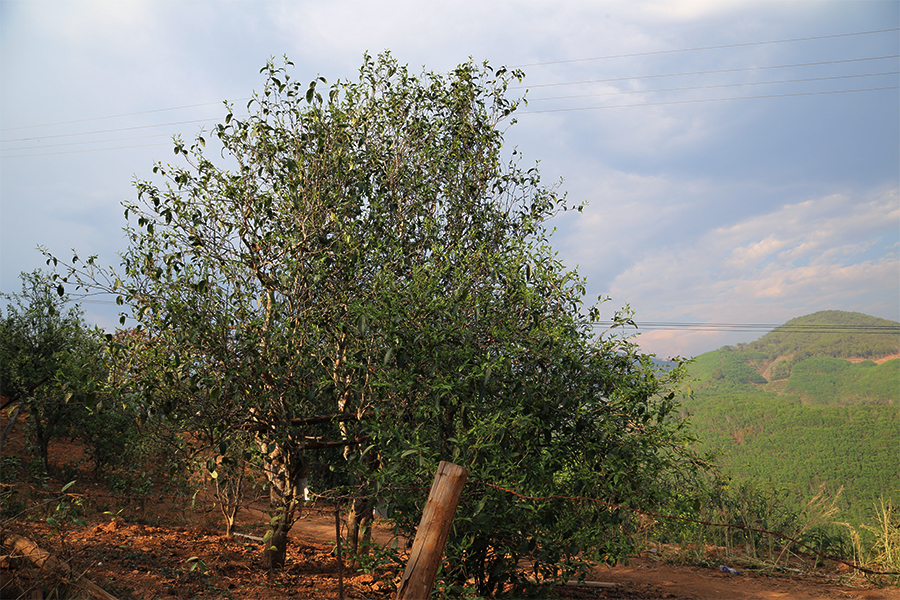Category: Tea log
It includes tea knowledge and tea culture. Tea knowledge encompasses information such as manufacturing techniques, brewing skills, and how to distinguish the quality of tea.
-

Introduction to the Taste of Xigui Ancient Tree Tea
Xigui Ancient Tree Tea, grown along the Lancang River in Bangdong Township, Lincang, Yunnan, is renowned in the tea world as the “Ban Zhang of Lincang.” Thriving on steep slopes at a low altitude (approximately 750 meters), these tea trees are nurtured by alternating fog and intense sunlight, while the lateritic red soil and riverside…
-

Introduction to the Taste of Jingmai Ancient Tree Tea
Jingmai Ancient Tree Tea, originating from the millennium-old tea forests of Jingmai Mountain in Yunnan’s core Pu’er tea region, is renowned for its unique ecological environment and ancient tree resources. It embodies the iconic “Jingmai aroma” and a delicate, harmonious flavor profile, earning it the title of “the hermit of teas.” Its taste characteristics can…
-

Bingdao Ancient Tree Tea: Flavor Profile”Rock Sugar Sweetness” in Tea
Bingdao Ancient Tree Tea, harvested from Bingdao Village (called “Biandao” or “Bingdao” in the Dai language) in Mengku Town, Shuangjiang County, Lincang City, Yunnan Province, is widely regarded as one of the finest mountain teas in the Pu’er tea world. The tea trees, mostly over a century old, thrive in the pristine forests at an…
-

The Taste Profile of Lao Ban Zhang Ancient Tree Tea
Lao Ban Zhang, nestled deep within the Bulang Mountains of Menghai County, Xishuangbanna, Yunnan, is synonymous with premium Pu-erh tea. Revered as the “King of Pu-erh” or the “Tea Sovereign,” its ancient tree tea is celebrated for its bold intensity, bittersweet interplay, and multi-layered complexity, representing the pinnacle of Pu-erh tea’s flavor artistry. I. A…
-

Pu-erh Tea: Health Benefits, Uses, and Cultural Significance
1. Introduction to Pu-erh Tea Pu-erh tea (普洱茶), named after its origin in Yunnan’s Pu’er City, is a unique fermented Chinese tea celebrated for its aging potential and health properties. Unlike other teas, it undergoes microbial fermentation during processing and post-fermentation over years or decades, developing complex flavors and bioactive compounds. Types: 2. Key Health…
-

The characteristics of new and old raw Pu’er tea, as well as new and old ripe Pu’er tea.
New Raw Pu’er Tea The aroma is high – pitched, usually presenting floral, honey, milk, or mushroom scents. The taste of the tea soup is highly stimulating and aggressive. The style of the soup body varies, showing characteristics such as being delicate, sharp, thick and smooth, or having a distinct sense of structure. Besides the…
-

Tea Qi
Explanation of Tea-tasting Terms – Tea Qi Tea Qi Explanation of Tea-tasting Terms – Tea Qi The Chinese people highly value artistic conceptions. The most representative ones are definitely calligraphy, traditional Chinese paintings, and even the layout of Chinese-style gardens. Calligraphy works, paintings, and gardens all create an abstract aura through aesthetic perception. This kind…
-

The Thickness and Smoothness of Tea Soup
Thickness of Tea Soup The thickness of tea soup refers to the sense of weight it presents in the mouth, varying from light to heavy. It can be likened to the difference between the sensations of pure water and rice porridge in the mouth. Pure water feels light, while rice porridge feels substantial. This sense…
-

Yiwu – style Charm of Pu – erh Tea
Yiwu is the only tea – producing area among several major Pu’er tea – producing areas that names its unique charm after the region, which demonstrates the distinctiveness of Yiwu charm. The charm is the overall sum of the aroma, taste, and after – taste experience after the tea soup enters the mouth. It includes…